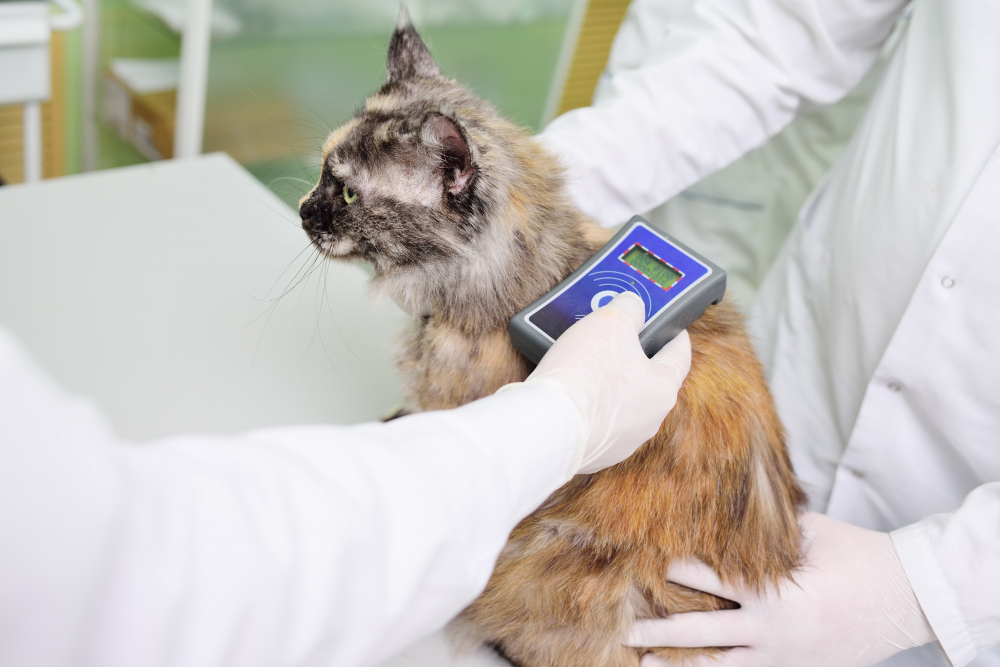Pet Microchipping in Portland, OR

Pet Microchipping
Keep track of your pet
Nearly 1 in 3 pets will become lost during their lives. Microchip implants are an incredibly simple, inexpensive, and effective way to find lost pets. Microchips help to keep pets out of animal shelters and back where they belong at home. These tiny chips serve as a permanent pet identification system that cannot be removed or damaged, reuniting you and your pet quickly. By supporting this practice, Roseway Veterinary Hospital hopes to reduce some of the nearly 8 million animals entering US shelters annually.
A simple process
The microchip is contained in a capsule smaller than a grain of rice and is non-toxic, hypoallergenic, and completely safe. A simple procedure places the chip just under the skin. These microchips never need to be removed or recharged during your pet’s lifetime.
The chip transmits radio waves with an animal-specific tracking number that, when registered, identifies the pet’s name and owner contact information. Should your pet run away or get lost, a simple scan of the chip will reveal the pet’s identity so it can be safely returned to you.
Roseway Veterinary Hospital believes microchipping is the safest, most effective method of pet recovery available, helping reunite thousands of lost pets to their owners every month. To learn more about the benefits of pet microchips or to schedule an appointment, call us at (503) 446-2450. You can also request a visit online.
